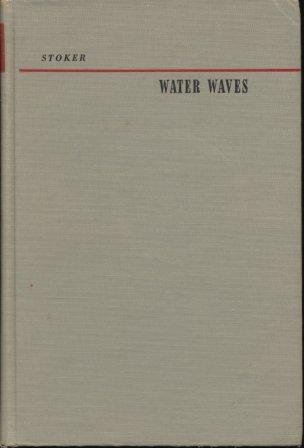
Water Waves: The Mathematical Theory With Applications
by J. J. Stoker
Publisher: Interscience Publishers 1957
ISBN/ASIN: B0000CJV8X
Number of pages: 609
Description:
Offers an integrated account of the mathematical hypothesis of wave motion in liquids with a free surface, subjected to gravitational and other forces. Uses both potential and linear wave equation theories, together with applications such as the Laplace and Fourier transform methods, conformal mapping and complex variable techniques in general or integral equations, methods employing a Green's function.
Download or read it online for free here:
Download link
(multiple formats)
Similar books
 The Physics of Ocean Waves
The Physics of Ocean Wavesby Michael Twardos - SurfLibrary.org
This text is intended to be a general but comprehensive overview on physical phenomena associated with the marine environment. The author provides his own perspective on this field from his particular experiences and training.
(9119 views)
 Mechanical Vibration
Mechanical Vibrationby Janusz Krodkiewski
Introduction to the theory of vibrations of mechanical systems. First part, Modelling and Analysis, is devoted to this solution that can be approximated by the linear models. The second part is on experimental investigations.
(19006 views)
 Lectures on Wave Propagation
Lectures on Wave Propagationby G.B. Whitham - Tata Institute of Fundamental Research
The first three chapters provide basic background on the theory of characteristics and shock waves. The main content is an entirely new presentation. It is on water waves, with special emphasis on old and new results for waves on a sloping beach.
(10570 views)
 Waves
Wavesby C. A. Coulson - Oliver And Boyd
The object of this book is to consider from an elementary standpoint as many different types of wave motion as possible. In almost every case the fundamental problem is the same, since it consists in solving the standard equation of wave motion.
(14229 views)